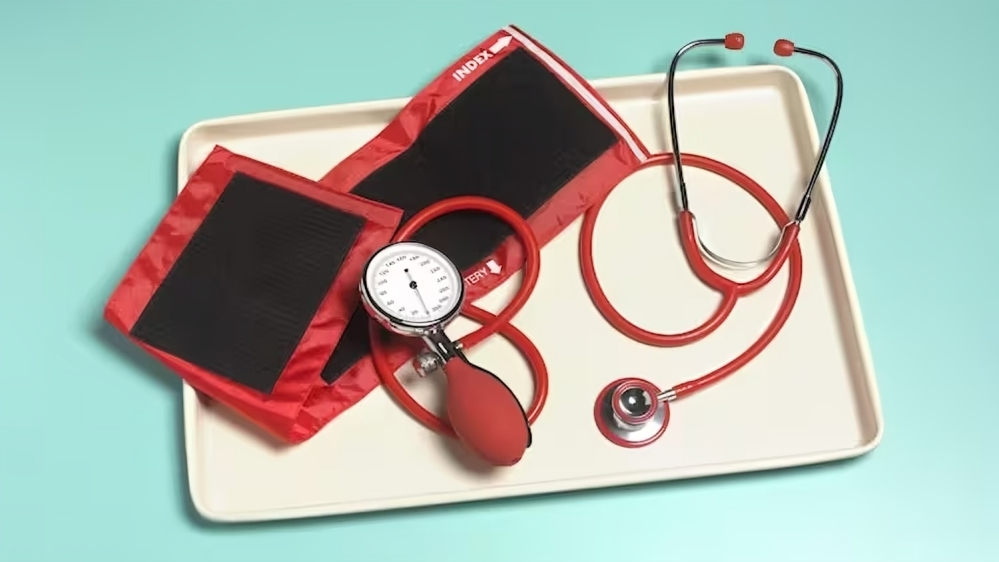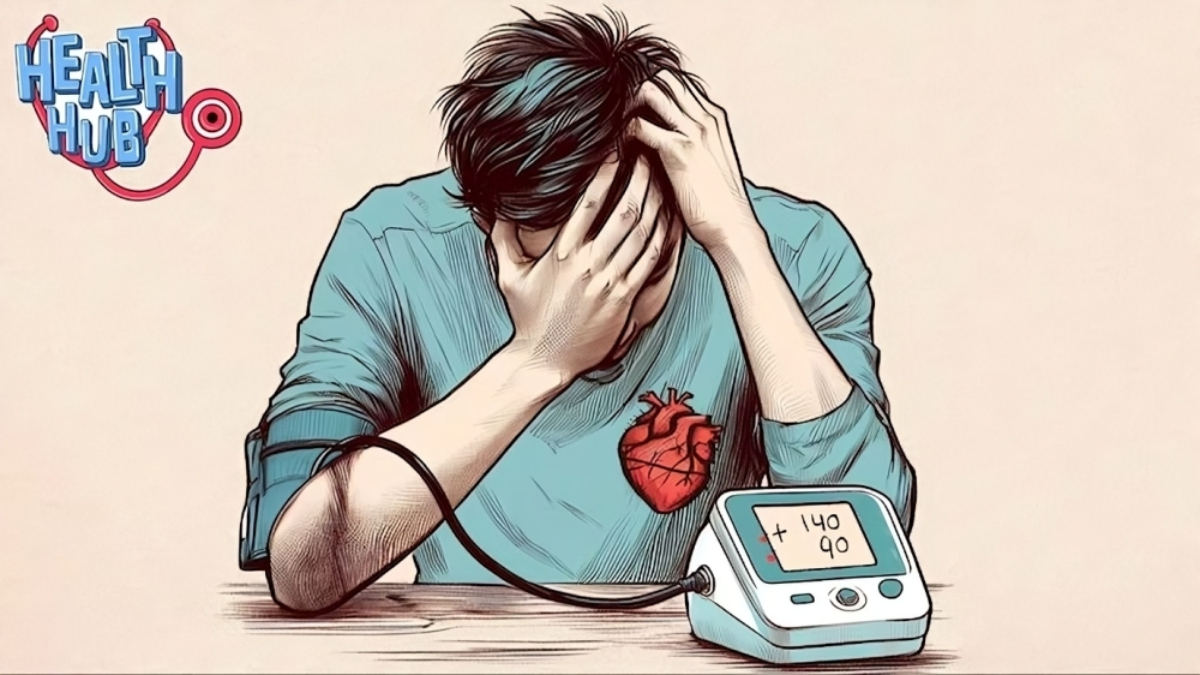Hypertension is responsible for more than 10.8% of all fatalities in India, and its impact is increasingly being observed among the younger population.
Following the aftermath of the Covid-19 pandemic, a new silent epidemic is gradually taking hold of the world, particularly affecting the younger population in India. Hypertension, commonly known as high blood pressure, has emerged as a formidable challenge.
Previously believed to primarily afflict the elderly, hypertension is now becoming increasingly prevalent among the youth. This alarming trend raises numerous concerns regarding lifestyle choices, health awareness, and the potential public health crisis that awaits if not addressed promptly.
Blood pressure refers to the force exerted by blood against the arterial walls, which are responsible for carrying blood away from the heart and throughout the body. Typically measured in millimeters of mercury (mmHg), a normal blood pressure reading falls within the range of 90/60mmHg to 120/80mmHg. High blood pressure is defined as 140/90mmHg or higher.
Unveiling the complexities of hypertension:

The World Health Organisation (WHO) has recently released its inaugural report, highlighting the devastating impact of high blood pressure and its association with life-threatening conditions such as stroke, heart attack, heart failure, kidney damage, and other health complications.
According to the Indian Council of Medical Research (ICMR), hypertension is responsible for more than 10.8% of all deaths in India. This alarming statistic emphasizes the urgent need for attention and action.
Dr. L.K. Jha, Associate Director & Head Unit of Cardiology at Asian Hospital, has emphasized that high blood pressure is no longer limited to the middle-aged population. It is increasingly affecting young Indians as early as their 30s. This concerning trend can be attributed to lifestyle factors such as work-related stress, unhealthy eating habits, and inadequate sleep.
Dr. Jha further highlighted that these lifestyle changes are negatively impacting the health of the nation’s youth. This calls for immediate intervention and awareness campaigns to address the growing health crisis.
In the Great India BP Survey (2018), Dr. Kartik Gupta, a physician at the All India Institute of Medical Sciences (AIIMS) in New Delhi, expressed concern over the timing of India’s screening program, which typically starts at the age of 30. He believes that this is too late and emphasizes the importance of early screening and promoting healthy lifestyles to prevent the impending crisis that India is facing.
It is evident that high blood pressure poses a significant threat to the health and well-being of the Indian population. Urgent measures need to be taken to raise awareness, encourage early screening, and promote healthy lifestyles to combat this growing problem.
Dr. Gupta concluded that the survey, which took place in 24 states from 9 am to 5 pm on a single day, identified significant risk factors such as smoking, tobacco chewing, diabetes, high cholesterol, previous heart attack or stroke, and the use of blood pressure medication. The key finding of the study suggests that screening for hypertension should commence at the age of 18-19. Additionally, Dr. Gupta highlighted that Indians have minimal physical activity, follow a diet high in salt, consume inadequate amounts of vegetables and fruits, and have shown an increasing preference for Western junk food and soft drinks.
Are there any indications of high blood pressure?
It has been demonstrated through research that high blood pressure typically does not manifest any symptoms. Nevertheless, in cases of extremely high blood pressure, individuals may experience symptoms such as headaches, blurred vision, nosebleeds, breathing difficulties, chest pain, irregular heartbeat, blood in the urine, confusion, or a pounding sensation in the chest, neck, or ears. If any of these symptoms occur, it is advisable to consult a medical professional.
Gaining Insight into the Offenders:
Dr. Manjinder Sandhu, the Principal Director of Cardiology at Max Healthcare, discussed the lifestyle factors that contribute to the increasing prevalence of hypertension among young Indians. In an interview with IndiaToday.In, he emphasized that the early onset of high blood pressure in this demographic is primarily driven by smoking, diabetes, and high cholesterol. These factors are alarming as they indicate a potential rise in cardiovascular diseases if left unaddressed. Additionally, inactive lifestyles, poor dietary choices leading to obesity, and a genetic predisposition to high blood pressure also play significant roles in this concerning trend. Moreover, the presence of diabetes further amplifies the risk, with hypertension often accompanying it.

The Hidden Danger of Hypertension
The ramifications of unmonitored hypertension are severe. Dr. Sandhu emphasizes that it is not simply a condition, but a precursor to more critical cardiovascular diseases. With the onset of heart attacks and strokes occurring a decade earlier than in Western populations, the impending danger of poor health is an imminent reality.
Present-day Solutions
Dr Sandhu emphasizes that the seriousness of the situation is not only due to the high prevalence of hypertension but also the lack of awareness surrounding it.
To address this growing trend, the expert recommends a comprehensive lifestyle overhaul. This includes adopting a balanced diet with limited salt intake, as excessive salt can elevate blood pressure. It is also important to moderate alcohol consumption, maintain physical activity, and find effective stress management techniques such as practicing yoga or meditation.
Regular check-ups, along with efforts to quit smoking and manage stress through activities like yoga or meditation, are crucial in combating hypertension.
Dr Jha further emphasizes that hypertension is a silent destroyer of the body as it affects all organs. Therefore, timely treatment is the key.
Overall, the increasing prevalence of hypertension among young Indians necessitates immediate attention and a collective call to action.
It is not just a personal health concern but a potential national crisis that requires a cultural shift towards healthier living.

